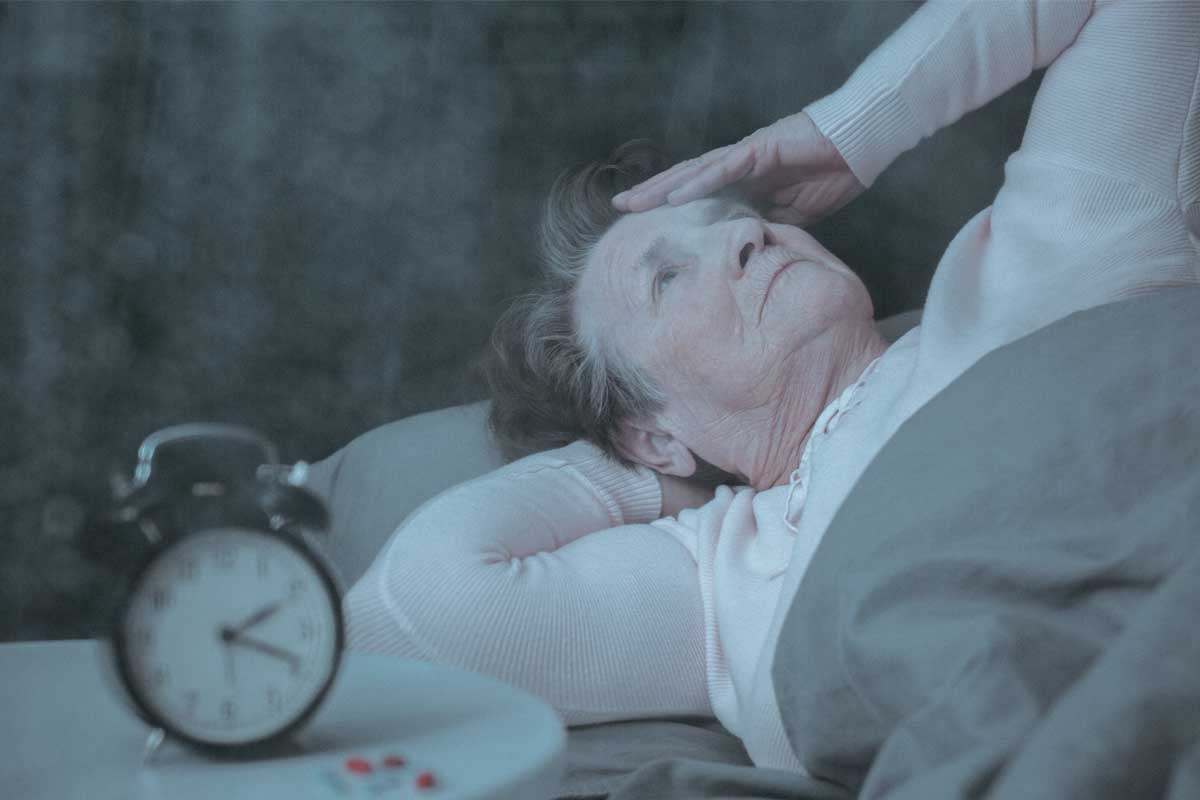Aging is connected to several health concerns, including sleep difficulties. Yet poor sleep contributes to the health problems they may experience, reducing their quality of life in people over 65. So why does aging affect sleep? Is there a solution to better sleeping habits for seniors?
Changes in sleep patterns for the elderly occur when their body’s internal clock changes, which is part of the brain hypothalamus composed of cells that form SCN (suprachiasmatic nucleus). SCN controls 24-hour daily cycles called circadian rhythms, which lets an adult know when they are hungry, tired, or alert. Deterioration of the SCN can disrupt the circadian rhythms causing hormone release or metabolism to be compromised. For caregivers, this becomes a health concern.
For people at a loss of what to do to help their aging adults, in-home care is a wonderful alternative. In-home caregivers provide the elderly with assistance in the comfort of their home. Assistance includes helping them with daily chores or activities such as bathing, meal preparation, transportation, companionship, laundry, house cleaning, and much more. They will even provide helpful tips on various topics, including sleep problems.
What conditions can interfere with an older adult’s sleep patterns?
- Changes in hormones such as melatonin or cortisol
- Mental and physical health conditions such as depression, anxiety, heart disease, or diabetes
- Side effects of medication that may be keeping them awake therefore developing insomnia.
- Lifestyle changes such as retirement, loss of independence or social isolation
- Napping later in the day can make it harder to fall asleep during the nighttime.
- Nighttime urination which increases with age due to changes in the urinary system
- Sleep apnea causes breaks in your sleep, affecting the oxygen levels in the body, which can lead to headaches and sleepiness during the daytime.
- Restless leg syndrome (RLS) causes an urge to move the leg while resting or sleeping, which can seriously impact a person’s sleep.
- A medical condition such as dementia can cause poor sleeping habits.
We’ve all heard that older people need less sleep, but is that true? According to the National Institute on Aging, this statement is considered a myth. Just because older adults have a hard time getting the sleep they need; does not mean they require less sleep. The National Sleep Foundation guidelines advise that people over 65 should get seven to eight hours of sleep each night.
Tips to help seniors get a better night’s sleep:
- Daily exercise. People who exercise regularly are known to fall asleep faster, sleep longer, and have a better sleep quality.
- A bedroom environment is conducive to sleep. Televisions and electronics can make it more challenging to fall asleep, so keeping these items out of the bedroom makes the area fitting for sleeping only.
- Avoid substances that hinder sleep. Alcohol, tobacco, caffeine, and even large meals late in the day can make going to sleep more difficult.
- Stay on a sleep schedule. Since aging makes it more challenging to recover from lack of sleep, sticking to a regular plan will help your body stay on track forming good sleep habits.
- Develop a bedtime routine. Find activities that will help you relax before bed, such as reading a book, taking a bath, or finding a quiet, calm place.
For the elderly, insufficient sleep can lead to falls and accidents. This type of accident would be a concern for their loved one’s safety and wellbeing. Reaching out to an in-home care professional service to assist with specific needs for your elderly adult would be wise. An in-home care service would alleviate the stress making family visits more enjoyable.
If you are looking for an in-home care service in the Lafayette, LA surrounding area, contact Home Instead today at 337-296-7990 to answer all your questions. Their well-trained caregivers can provide supervision based on the needs of the patient and family. They will be a vital part of your loved one’s overall health care.



